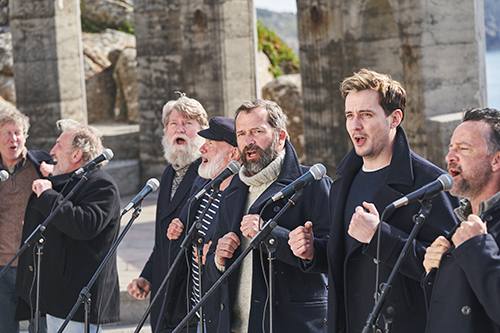
Be prepared for some serious Cornish wanderlust as the Fisherman's Friends sequel ambles into Cineworld on a tide of bonhomie, humour and nostalgic warmth.
Real-life music group the Fisherman's Friends unexpectedly won themselves a huge fan base with their home-spun odes to their beautiful Cornish home of Port Isaac. The subsequent Fisherman's Friends movie, released in 2019, spun a fictional twist on the true story of the UK's most unlikely boy band and became a sleeper hit.
Sequel Fisherman's Friends: One and All picks up with the salty seadogs in the wake of their barnstorming success. However, the perils of fame prove difficult to navigate, and the lads must reconcile their own personal crises en route to the 2011 Glastonbury Music Festival.
We caught up with screenwriters-turned-directors Nick Moorcroft and Meg Leonard to discuss their approach to the sequel. Scroll down to check out our interview.
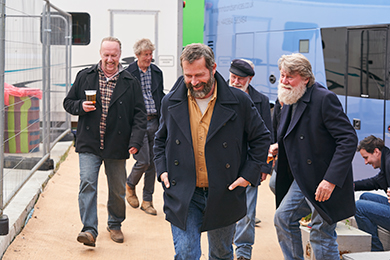
The story of the real-life Fisherman's Friends collective informed the narrative arc of the first film. How much did their ongoing journey influence the structure of the sequel?
Nick: When we first came across the story that informed the first film, it revealed itself as a really compelling fish out of water story - pardon the pun!
However, it was also a fantastic tale of the little person against the big person in which 10 ordinary fishermen get signed by Universal Records and make a million-pound record deal. There was evidently a film in there.
Meg: And that had just happened when we first met the fishermen, in 2010.
Nick: They then went on this huge journey. When we wrote the first film, we made a conscious decision to finish at the moment where they get a top 10 hit.
There were many incarnations of the script over the years. Despite the desire to include the next bit of the story, there was too much to include in the first film.
We always knew in the back of our minds that if film number one could work, the second part of the story was as compelling a pitch as the first story. This time, 10 ordinary fishermen have become famous and end up playing the Pyramid Stage at Glastonbury.
Meg: Supporting Beyoncé!
Nick: There's the journey. So it was a question of working out the conflict.
Meg: We've taken artistic licence to dramatise some of the themes. But it's all inspired by the band and their journey.
We actually went to Glastonbury with them in 2011 when they supported Beyoncé. So, for us, it was a story that we were personally keen to tell.
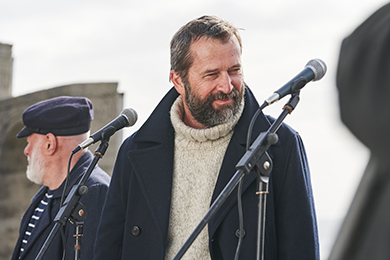
Nick: Good film is all about conflict. We understood what number one was about, but it was more of a Jerry Maguire-style set-up. It was more about the record manager.
Meg: This new movie is more Spinal Tap. [laughs]
Nick: This movie is about the group. This is about Jim the fisherman. It's definitely James Purefoy's story. We made a conscious decision to centralise his journey. It's about him and how everyone around him is struggling with fame.
They're also struggling to juggle the needs of the community and the needs of professional life as fishermen with their newfound lives as pop stars.
Meg: We had the pressure of making a sequel that we knew we had to elevate. We needed to elevate it musically, dramatically, visually, comedically. This storyline allows us to go deeper into all of the characters, particularly James'. The scenery is bigger to support that.
We shot during COVID so there was a desire to not stay in the village all the time. We got out into bigger, even more dramatic parts of Cornwall. We were the first film to shoot at the Minack Theatre after it re-opened in the wake of COVID.
In real life, the band really did play there on their way to Glastonbury. The Minack was keen to be represented as a real stepping-stone on the band's journey towards the Pyramid Stage.
Nick: The label wasn't going to release the next album, and this is covered in the film. In terms of the narrative, they've become famous and the endpoint is Glastonbury. Now, let's do a lot of research and make it work as a movie.
Meg: We were developing this movie during lockdown and we'd all, collectively, gone through an unprecedented experience. Maybe a lot of people had struggled and become depressed and isolated. We wanted to honour that in Jim's storyline.
When we left him in the first film, his father, Jago, had died. So, Jim is now struggling with grief. That can be a lonely place but we wanted to honour the, 'It's OK to not be OK' message.
It's personified in our lead, an alpha male, very capable fisherman. He's not necessarily the character one would expect to struggle with those emotions.
Hopefully, that's something that the audience will connect with. It's one of the accessible, undercurrent themes of this film.
Nick: Glastonbury becomes the mountain to climb. That's the narrative. When it goes wrong, one by one they start to regroup, but Jim isn't coping very well. He's met the wonderful Aubrey Flynn, played by the equal wonderful [Irish singer-songwriter] Imelda May. She's an amazing rock star.
Meg: And here she makes her acting debut.
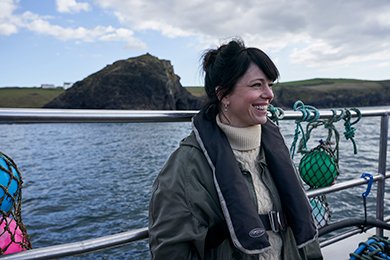
In terms of bringing Imelda on board, was that a significant step forward for the project?
Meg: We'd been fans of hers as a musician and a poet for a long time. We did a big casting search for an actress to play this character. Imelda was a big fan of film number one and the band.
She put herself on tape and when we saw it, we realised she was the real deal. She's utterly charming and authentic. She's very naturally gifted as an actress.
Nick: It's very rare to have the writers, directors, producers, co-stars and financiers all watching an audition tape and unanimously agreeing on it.
Bearing in mind, it was the first time Imelda had ever acted, and for Meg and I, it was the first time we had ever directed.
Meg: She took a chance on us and we took a chance on her. It was a lovely experience for all of us.
"The first film was about the record manager. This movie is about the group." – Nick Moorcroft
How was the transition from writing the first film to directing this one?
Meg: It felt like a natural step, didn't it? Because we were very hands-on with film one.
Nick: Yeah, we produced the first one with our partner, James Spring. We've also written and produced other films and as Meg says, we've been quite hands-on. That extends to being on the floor in production and also in post-production in the edit and with music.
The distributor and James Spring were keen for us to be doing something on this new movie anyway. This became a conversation about a number of films that we had on offer.
Meg: This one was a real passion project for us. We'd built a really lovely trust with the cast while making film one. It felt like a natural step.
Nick: A lot of actors are really nervous about comedy. It can go wrong. As Meg just said, because the trust was there, it allowed us to write bigger drama and bigger comedy. New actors might have felt more exposed.
Meg: We had a shared sensibility that came out of having made the first film. All of us were keen to go into battle again together.
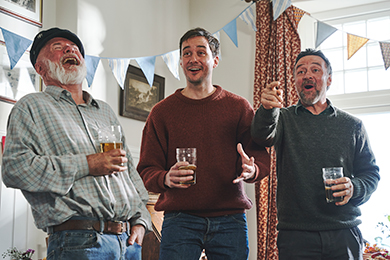
How much of the singing are you capturing live on-set? Is it captured live or is it being post-synced?
Meg: It's filmed live and then enhanced in the post-production process. The real fishermen's voices are blended in. Our actors sing as well.
We build beyond the scope of what we can capture on the set. Instrumentation, bigger voices and larger sound, so it swells more. It's a combination. But yes, we record for real on the day.
Nick: The Minack Theatre scene is an example of a great collaboration. You've got Richard Harrington leading 'A Sailor Ain't a Sailor.' That's all Richard.
But when you get to the choruses, we're bringing in James Purefoy and the real fishermen to kind of swell it and boost the numbers. That happens a lot over the course of the film.
Meg: It was a really rewarding process with our composer, Rupert Christie, and our music supervisor building the tracks. We've got Imelda singing on three of the tracks in the film.
Nick: Yeah, she sings 'Cornwall My Home' and 'High Ho Silver Lining', which was a cover of Jeff Beck's classic.
Meg: She'd been touring with Jeff previously and he isn't usually keen for people to cover his songs. However, he loves Imelda and it was a song that we wanted to use in the film anyway. So we used her version of it.
Nick: We haven't spoken to Jeff but Imelda said he was delighted when he received the masters of the recording. He gave it his blessing.
Meg: And Imelda's version is being released along with the film on August 19th.
Nick: It's really uplifting and that's the big thing about this film. People will probably be surprised about some of the dramatic and emotional depths it goes to.
There are some tough moments in there. It's a tough journey. But it's what the world needs right now. It's heartwarming and it's about community. It's about friendship.
Meg: Along with beautiful scenery and music. Hopefully, people will laugh, cry and sing!
Nick: For us, it's something that absolutely has to be seen in the cinema. It does feel like a cinematic experience. Everything is enhanced by that.
Meg: We watched it with an audience for the first time in Newquay at the Cornish premiere. It was fantastic to see it with a full audience laughing, crying, clapping, singing and standing up – it was fully interactive.
Nick: Admittedly, a little bit partisan! [laughs]
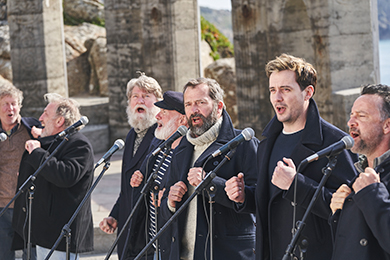
Yes, as a south-westener myself, I agree that there aren't anywhere near enough Cornish or Devonian people in the movies.
Nick: Let's start the campaign right now! [laughs]
Meg: As Nick said, the film is about community and the message travels. There are communities nationwide that feel represented by these characters.
Nick: In real life, the band members are classic underdogs. That's the thing. And in this film, they're underdogs too.
They are struggling because they're being themselves and the world needs to, and wants to, change them. But you can't change the fishermen, as we found out in film one.
Meg: It's the fishermen who change the world, ever so slightly.
Nick: That's the essence of the conflict. It makes them feel like heroes.
"This movie goes deeper into the characters, particularly Jim." – Meg Leonard
You're releasing this film in a very different landscape in the wake of COVID. Do you think the message of solidarity has the capacity to reach more people now than ever before?
Nick: We very much hope so because it's not just about our film. We're flying the flag for British film.
We're at a really important crossroads in terms of cinema. It's been amazing to see the blockbusters and franchise movies getting people back into the cinema. Trust has once again been earned and it signals a safe space.
But it's really hard to penetrate through and get movies into the cinema, to get the big wide releases. That's what we want to continue to do. This release is really important. For the next three or four weeks, there aren't really any comedy releases coming out.
Although summer is traditionally the stronghold for the blockbuster and the family movie, the same period can also work really for comedy, The Inbetweeners Movie being an example from several years ago.
Meg: We're optimistic that people want to go back to the cinema for movies such as this. We make films because we want people to connect and share emotions. It's entertainment but it's enhanced when you're watching it with other people.
Nick: We want to point out how much Cineworld has been championing this film for the past month. We're so grateful. Cineworld has got right behind it. Hopefully, that pays off.
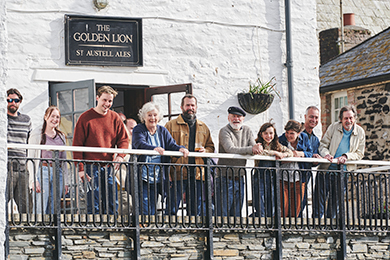
I love the way you capture the beauty of Port Isaac in both movies. The village is clearly another hugely important character in the drama, right?
Nick: In both films, you see the impact of new people coming into that world and how it transforms people's lives. It's a transformative environment.
It definitely plays through Imelda May's storyline. Her character seeks solace and she, unknowingly, finds a community and a world that fundamentally changes her entire outlook.
Meg: That same world sees her as the outsider, but she helps heal it. She's greeted with suspicion but the wisdom she brings from her experience helps heal the community. It's an exchange of gifts.
Are you ready to return to Port Isaac? Then click here to book your tickets for Fisherman's Friends: One and All. The movie is released in Cineworld on August 19th.
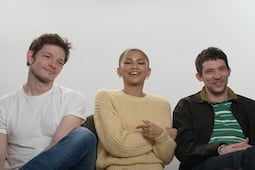
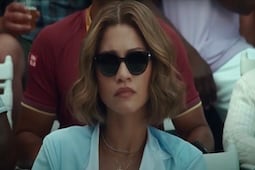

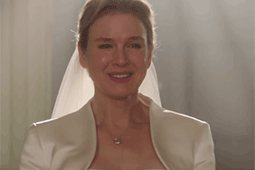
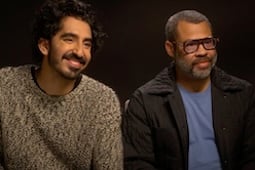
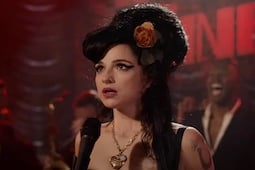
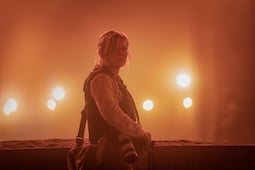
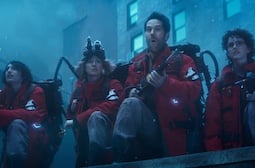
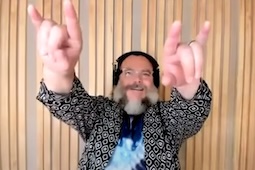
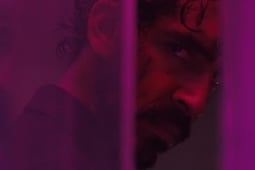

.jpg)
.jpg)
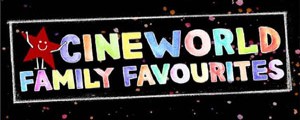
.jpg)
.png)



